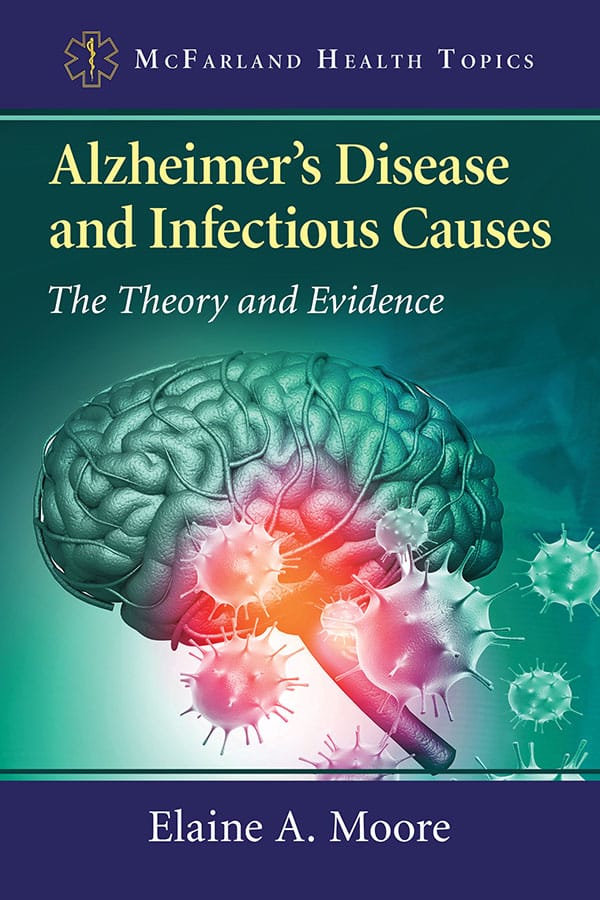Alzheimer’s Disease and Infectious Causes
The Theory and Evidence
$39.95
In stock
About the Book
With the recent discovery that amyloid beta protein, the cause of plaques in Alzheimer’s disease, is an antimicrobial peptide produced in response to infection, many researchers are focusing on the role infection plays in the development of Alzheimer’s disease. Brain studies have also identified a number of different viruses, bacteria, fungi, and protozoa in the postmortem brain specimens of Alzheimer’s patients.
Infection (particularly chronic, latent and persistent infections) causes an immune response that leads to inflammation and brain cell degeneration, which are characteristic features of Alzheimer’s disease. Sources of infection in Alzheimer’s disease vary from childhood infections to gut microbes that find their way into the brain as a result of aging, leaky gut syndrome, and increased permeability of the blood brain barrier. Studies and ongoing clinical trials show that treatment of viral and bacterial infections, as well as restoring a healthy balance to the gut microbiome, can reduce disease risk and improve symptoms in patients with Alzheimer’s disease. This book serves as an introduction to the human microbiome and the role that infection plays in the development of Alzheimer’s disease.
About the Author(s)
Bibliographic Details
Elaine A. Moore
Format: softcover (6 x 9)
Pages: 232
Bibliographic Info: 19 photos, bibliography, index
Copyright Date: 2020
pISBN: 978-1-4766-7861-0
eISBN: 978-1-4766-3891-1
Imprint: McFarland
Series: McFarland Health Topics
Table of Contents
Acknowledgments vi
Preface 1
Introduction 3
One—The Mystery of the Mind and Consciousness 7
Two—Infection as a Primary Cause 32
Three—Microorganisms and the Microbiome 48
Four—The Immune System, Neurodegeneration and the Blood-Brain Barrier 71
Five—Stages and Pathology of the Disease 86
Six—Herpes Viruses 105
Seven—Other Associated Viruses and the Prion Connection 119
Eight—Bacterial Infections 130
Nine—Fungal and Protozoan Infections 144
Ten—Risk Factors 153
Eleven—Genetic Influences 170
Twelve—Risk Reduction and Therapies 184
Bibliography 203
Index 215
Book Reviews & Awards
• “Following a personal experience as caretaker for her mother, laboratory technologist Moore sought to compile information on the potential influences of infectious agents on Alzheimer’s disease. In the resulting book Moore presents an application of the theory of microbial influence on disease progression. …This book should be useful to those who study Alzheimer’s disease and for courses that focus more generally on the relationship between the human microbiome and disease. …recommended”—Choice
• “[Moore’s] writing is informed by her knowledge of medical literature, but her accessible prose allows any interested patient or caregiver to understand recent advances in various topics. … [She] starts with basic information about Alzheimer’s disease, and includes accessible data on genetic and environmental risk factors implicated in research, but the focus is on infectious causes. …excellent”—Library Journal
Ebook Availability
Amazon Kindle
Apple
B&N Nook
eBooks.com
Google Play
Kobo
Walmart





